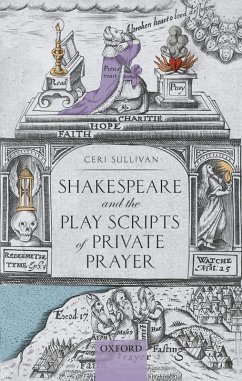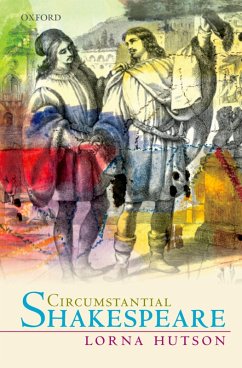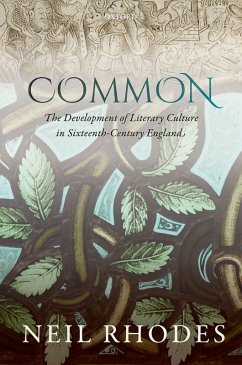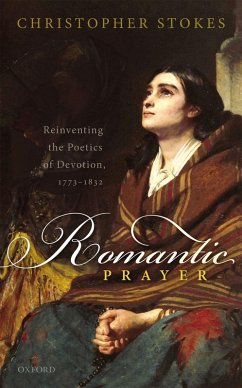
Shakespeare and the Play Scripts of Private Prayer (eBook, PDF)
Versandkostenfrei!
Sofort per Download lieferbar
40,95 €
inkl. MwSt.
Weitere Ausgaben:

PAYBACK Punkte
20 °P sammeln!
Early modern private prayer is skilled at narrative and drama. In manuals and sermons on how to pray, collections of model prayers, scholarly treatises about biblical petitions, and popular tracts about life crises prompting calls to God, prayer is valued as a powerful agent of change. Model prayers create stories about people in distinct ranks and jobs, with concrete details about real-life situations. These characters may act in play-lets, or appear in the middle of difficulties, or voice a suite of petitions from all sides of a conflict. Thinking of early modern private prayers as dramatic ...
Early modern private prayer is skilled at narrative and drama. In manuals and sermons on how to pray, collections of model prayers, scholarly treatises about biblical petitions, and popular tracts about life crises prompting calls to God, prayer is valued as a powerful agent of change. Model prayers create stories about people in distinct ranks and jobs, with concrete details about real-life situations. These characters may act in play-lets, or appear in the middle of difficulties, or voice a suite of petitions from all sides of a conflict. Thinking of early modern private prayers as dramatic dialogues rather than lyric monologues raises the question of whether play-going and praying were mutually reinforcing practices. Could dramatists deploying prayer on stage rely on having audience members who were already expert at making up roles for themselves in prayer, and who expected their petitions to have the power to intervene in major events? Does prayer's focus on cause and effect structure the historiography of Shakespeare's Henry VI, Richard III, Richard II, Henry V, and Henry VIII?
Dieser Download kann aus rechtlichen Gründen nur mit Rechnungsadresse in A, B, BG, CY, CZ, D, DK, EW, E, FIN, F, GR, HR, H, IRL, I, LT, L, LR, M, NL, PL, P, R, S, SLO, SK ausgeliefert werden.













